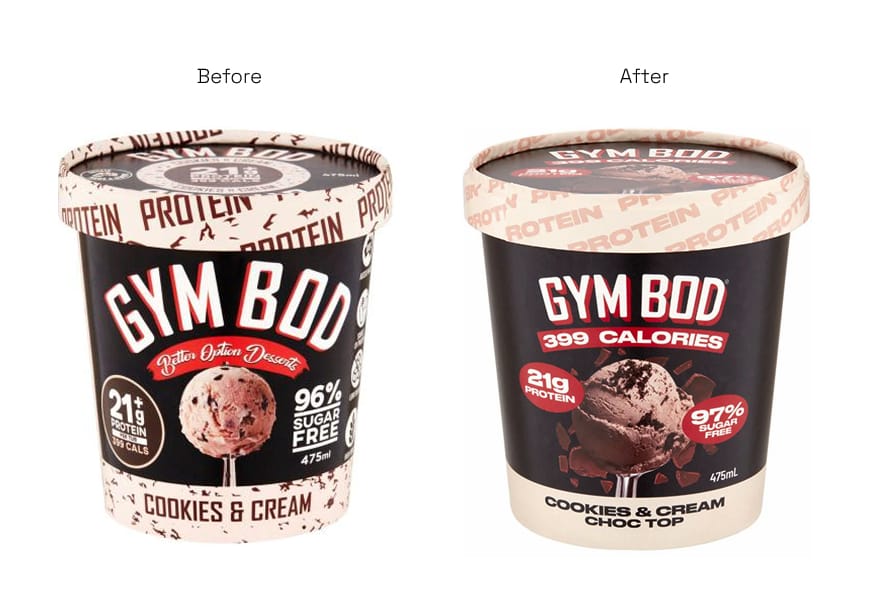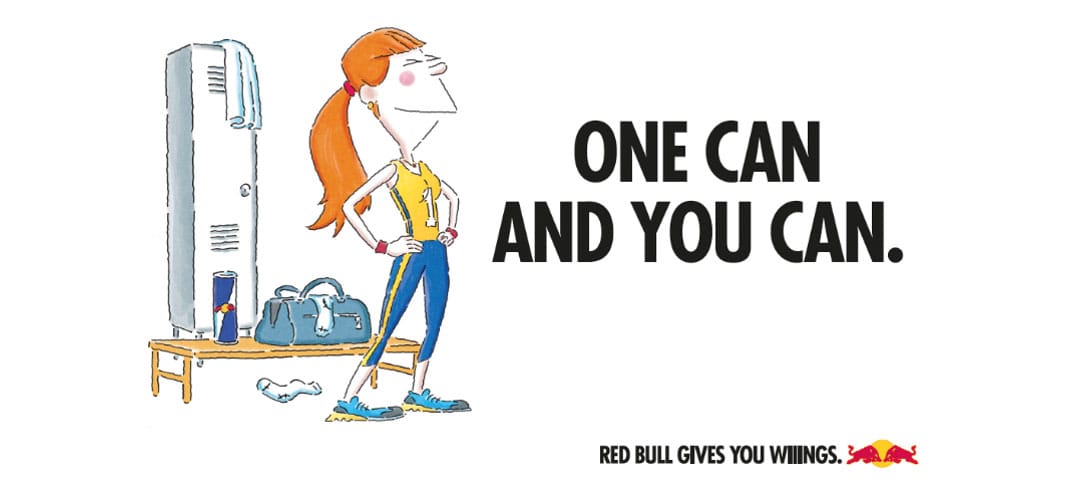- supergoods
- Posts
- Risks won't make you rich.
Risks won't make you rich.
And the power of compounding consistency.
“But don’t you ever just want to make a big swing and take a risk?”
This question hit right at the heart of a tension in the creative industry. I was doing a talk at Process, an event for the creative community in Melbourne. But instead of talking about the power of creativity, I talked about research.
In a room full of designers and art directors, I was the nerd rocking up to the bar with a spreadsheet. But that contrast is my version of fun.
We all love the stories of brands going against the grain, making gut decisions and taking huge risks that pay off with fame and fortune.
But there’s a problem with these stories. Survivorship bias. We only hear about the winners. They’re glorified, held up as shining examples and we’re all inspired to follow.
But the reality is that for most companies, consistency will compound with time. Taking huge risks, making big changes and being “disruptive” is not usually the best strategy.
Today’s episode explores the answer to this question and the tension that lives in every commercial marketer’s head. I’m calling it..

This edition is brought to you by Mind Control (a supergoods sister co.)

New work alert. The GYM BOD update.
We’re stoked to share that our refresh of leading better-for-you dessert brand GYM BOD has hit the shelves.

Our work covers brand identity (updates to logomark, colours, typography, visuals), packaging architecture (across multiple formats and flavours) and packaging design through to execution.
You can read the case study here.
If you’re considering a refresh, reach out to chat options!
Consistency probably won’t win you any awards but it’ll make you rich.
That was my response to the question, btw.
Perhaps an unpopular opinion but brands won’t grow through a never ending churn of creative directions. The “brave big idea” can only work with consistency and execution. There is no silver bullet, single idea that is going to solve all your problems and make people flock to your brand with their wallet out begging to buy.
I love Liquid Death. Partly because it aligns to my obsession with metal and skateboarding, but more so for the beautiful marketing story. But the reality is for every Liquid Death, there are dozens of “edgy” beverage brands that never made it out of the fridge.
And part of what makes Liquid Death so good is their commitment to consistency and next level execution. They are able to take the same through-line of ‘kind of silly ideas’ and iterate in different ways that are exactly on-brand.
There is no “logo” here but I bet you can instantly recognise this ad
I think us marketers often overstate the role brands play in people’s lives. When we work on a brand, we’re all filled with exciting ideas and possibilities.
But the best brands are built for billboards. Effective from 30 metres away for 3 seconds at 100km/hr.

And the only way you can land this level of effectiveness is to consistently build the elements of the brand in people’s heads for a very long time.
The illustrative style, the colours of the can, the icon, the tagline - all of these pieces of the puzzle have been used consistently by Red Bull since 1992.
And that consistency opens up a world of creativity and play. They can stretch the ideas, messages and visuals into all sorts of directions without any level of risk.
But it’s boring to say “don’t change your logo, can or ad style for 33 years”. Instead, we’d rather read about the dramatic rebrand that skyrocketed sales.
The reality is that every overnight success is years in the making. Most of the time, real growth stories aren’t revolutions but refinements.
Data doesn’t decide, it informs
I picked up this philosophy after hours of conversations about research and insights with Anna Henwood, the CEO of Stickybeak.
Weak-willed operators will revert to “data-driven decisions” because they lack the conviction to make a call themselves. They’re using research as a shield, not a sword.
But if you switch your mindset - if you treat research not as “win” or “lose” but as a way of mapping the battlefield - it’s liberating.
You can see the terrain.
You can spot the landmines.
And you can still choose your path.
Because the best marketers don’t default to the data.
They interpret it.
They use it to make smarter creative calls and then execute them with consistency.
Creativity guided by evidence, not replaced by it.
What do you think?
What did you think of today's story?Click to vote, it helps us improve. |
Reply